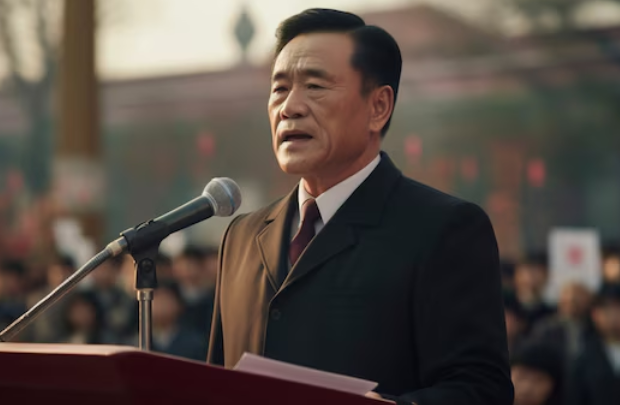INTRODUCTION TO THE CRISIS
In December 2024, South Korea faced a severe political crisis following President Yoon Suk Yeol’s declaration of a provisional state of emergency and reported plans to implement martial law. President Yoon justified these actions as necessary to address escalating security threats from North Korea. However, by bypassing constitutional procedures and centralizing power within the executive branch, he provoked widespread accusations of orchestrating a “self-coup” to undermine South Korea’s democratic framework.
In response to the state of emergency and the alleged preparation to impose martial law, the South Korean National Assembly impeached President Yoon Suk Yeol by a vote of 204 to 85. Prime Minister Han Duck-Soo has assumed the power as Acting President of South Korea. The impeachment will now be reviewed by the Constitutional Court, which has up to 180 days to deliver its verdict. If at least six out of nine judges validate the impeachment, President Yoon will be permanently removed from office, and a new election will be held within 60 days.
This is the third impeachment of a South Korean president by the National Assembly: –
- In March 2004, President Roh Moo-hyun was impeached by the National Assembly but was reinstated after two months when the Constitutional Court overturned the impeachment.
- In December 2016, the first female president, Mrs Park Geun-hye, was impeached by the National Assembly on corruption charges. Her impeachment was upheld by the Constitutional Court, leading to her removal from office and subsequent imprisonment. In 2021, she was pardoned by the then-President Moon Jae-in.
KEY ACTIONS TAKEN BY PRESIDENT YOON
President Yoon’s invocation of martial law provisions allowed him to: –
- Dissolve the National Assembly. [Parliament of South Korea]
- Remove key opposition members from the cabinet.
- Consolidate decision-making authority within the presidency and the military.
While the president framed these measures as necessary to address heightened security threats, critics accused him of exploiting national security concerns to weaken democratic institutions established after decades of struggle against authoritarian regimes. Even some National Assembly members of the ruling party too opposed the action of President.
DOMESTIC REACTIONS
The declaration of martial law triggered significant resistance across South Korea:
- Public Protests: Citizens took to the streets to oppose what they perceived as an authoritarian regression, voicing concerns over threats to democracy in a country often hailed as a leading democracy in Asia.
- Opposition’s Stand: Political opponents condemned Yoon’s actions as unconstitutional, with many drawing parallels to South Korea’s past military dictatorships.
INTERNATIONAL RESPONSES
The crisis reverberated beyond South Korea, eliciting varied responses from the global community: –
- S. and Allies: The United States and other allies urged restraint, emphasizing the need for transparency and adherence to democratic norms.
- Global Observations: Political analysts warned that these developments could tarnish South Korea’s international reputation and undermine its political stability in the long term.
CHRONOLOGY OF EVENTS
- December 2024: President Yoon dismissed the National Assembly and invoked martial law provisions, citing a national security emergency.
- Cabinet Dismissals: Key cabinet members opposed to the move were removed, intensifying concerns of an authoritarian shift.
- Public Protests: Widespread demonstrations erupted nationwide, calling for a restoration of democratic processes.
Emergency mediation efforts led to a partial rollback of martial law powers, though significant authority remained centralized under security provisions.
CONSTITUTIONAL IMPLICATIONS
President Yoon’s actions exposed significant vulnerabilities in South Korea’s constitutional framework:
- Balancing Security and Democracy: The crisis highlighted the inherent tension between ensuring national security and maintaining democratic accountability.
- Legal Safeguards: Critics argued that existing constitutional checks and balances failed to adequately prevent overreach, emphasizing the need for reforms to safeguard democratic governance during emergencies.
COMPARISONS TO HISTORICAL PRECEDENTS
The invocation of martial law evoked memories of South Korea’s past military dictatorships, raising concerns about potential long-term shifts in governance. Analysts emphasized that the incident underscored the fragility of democratic institutions in the face of executive overreach during crises.
FUTURE OUTLOOK
South Korea now faces heightened scrutiny regarding its constitutional mechanisms and the balance of power within its government. Moving forward, there is a pressing need to:
- Strengthen legal safeguards to prevent misuse of emergency powers.
- Foster a political culture that prioritizes democratic accountability, even during periods of crisis.
The 2024 political crisis serves as a stark reminder of the delicate equilibrium between security imperatives and the preservation of democratic norms in modern governance.
Note: – The Constitutional name of North Korea is Democratic People’s Republic of Korea, whereas Republic of Korea is the Constitutional name of South Korea.
Both become member of United Nation Organization in on 17th September, 1991.

